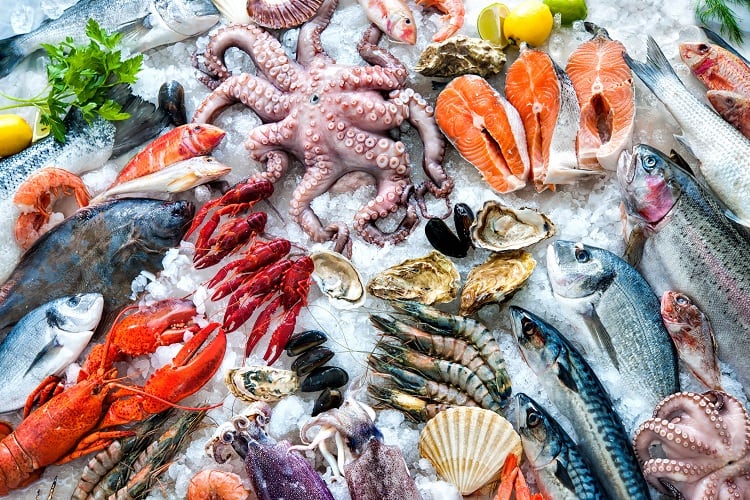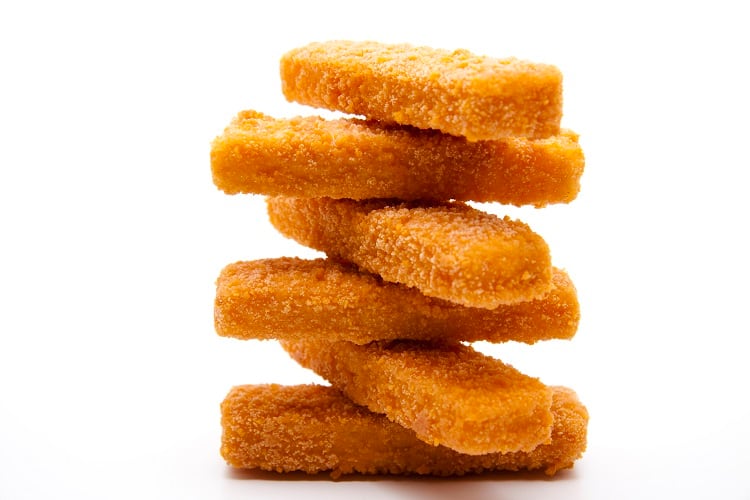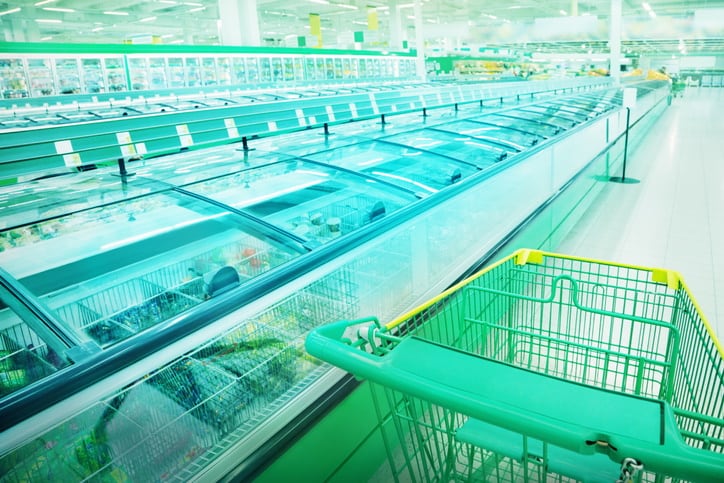The frozen fish category has proved to be one of the few beneficiaries of the COVID-19 pandemic. In 2020, the total frozen category grew by almost 16% in the UK – compared to a total grocery store growth rate of 8.5% – with frozen fish accounting for around a quarter of sales.
At the same time, premium seafood producers struggled to sell through traditional foodservice channels, as regional and nationwide lockdowns saw restaurant and catering industries grind to a halt.
How can seafood brands capitalise on escalating demand for online shopping? And, moving forward, what will the ‘new normal’ – with fewer, or even no restrictions – mean for the UK’s seafood market?
Opportunities in e-commerce
The coronavirus pandemic has helped drive e-commerce sales across the board, as social distancing measures impact consumer shopping behaviour.
In seafood, Birds Eye – owned by Europe’ largest frozen food company Nomad Foods – says online retail has been ‘highly disruptive’ throughout the pandemic, with sales increasing from around 12% of total sales pre-COVID, to approximately 25% today.
E-commerce offers a lot of new opportunities, said Steve Challouma, General Manager UK at Birds Eye, suggesting that frozen food can benefit from the platform perhaps more than most.
“Frozen food tends to be the last aisle in the store,” he told delegates at the Norwegian Seafood Council’s 2021 Norwegian – UK Seafood Summit. “It’s very cold and uninviting sometimes.” By selling frozen food online, however, brands can ‘remove that barrier’, he explained. “It actually generates a lot of demand and creates opportunities.”
In conventional retail, for example, brands cannot ‘bundle’ together products in the same way. If Birds Eye wants to sell a three-component fish, chips and peas meal, it can ‘very easily do so with one click’, the General Manager elaborated.
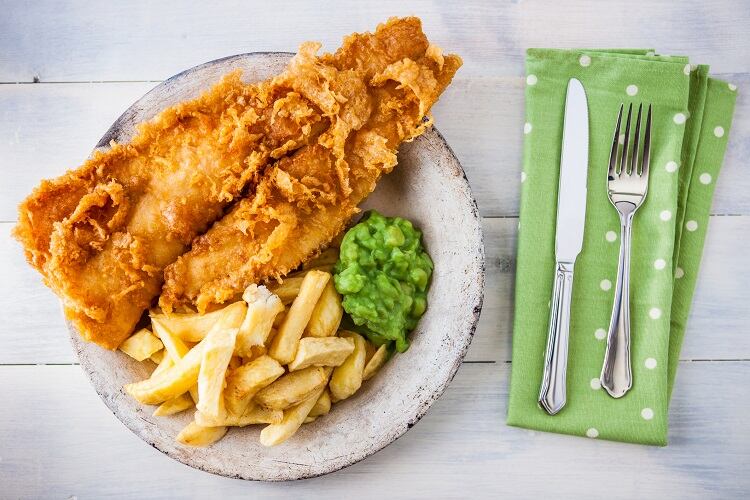
Kantar analyst James McKenna agrees with Challouma. In-store, frozen fish is traditionally located in the corner of the supermarket. “It’s not fully visible in your normal shopping trip,” he explained. “You can’t have a frozen fish aisle right in the front of the store, but you can have it on that front webpage.”
Ultimately, brands are able to influence the shopper mindset in a way ‘that would just never happen’ with signposting or posters in a physical store format, the analyst stressed.
At the same time, Cate Trotter, Head of Trends at retail consultancy Insider Trends, encourages seafood brands to look beyond conventional retail and e-commerce channels.
“I’m not sure we’re going to see the seafood market recover until maybe 2022 or beyond,” she told delegates at the Norwegian Seafood Council event. However, brands should consider alternative channels to help cover potential losses, the Head of Trends continued.
One such opportunity could be via partnerships with recipe box companies. “We’ve seen that Hello Fresh has grown its sales by 60% against its COVID hit. Of course, there are all the traditional supermarkets to think about, and setting up your own D2C channel, but then there are also new start-up grocery businesses to think about too.”
Will e-commerce falter as restrictions ease?
What businesses really want to know – and particularly those that have benefited from the recent move to online – is whether e-commerce is here to stay. Once social distancing measures are eased, foodservice reopened, and consumers return to eating on-the-go, will shoppers continue to buy food online?
For the frozen fish category, Kantar’s McKenna says the answer is a resounding 'yes’.
McKenna said he sees the easing of lockdown restrictions in three chronological stages. “Firstly, there is the current lockdown period, where we are still thinking in terms of the COVID pandemic,” he told delegates. Aiming for ‘rough normalisation’ around Q2/Q3 of 2021 – with the loosening of restrictions between now and then – the analyst predicts e-commerce will retain its strength during this time.
“Even if we look back at August, where restrictions were at their lightest and the Eat Out to Help Out Scheme was trying to boost foodservice channels, we saw that online fish sales continued to rise. So even if there is a relative loosening of restrictions in the short-term, we still expect online to thrive.”
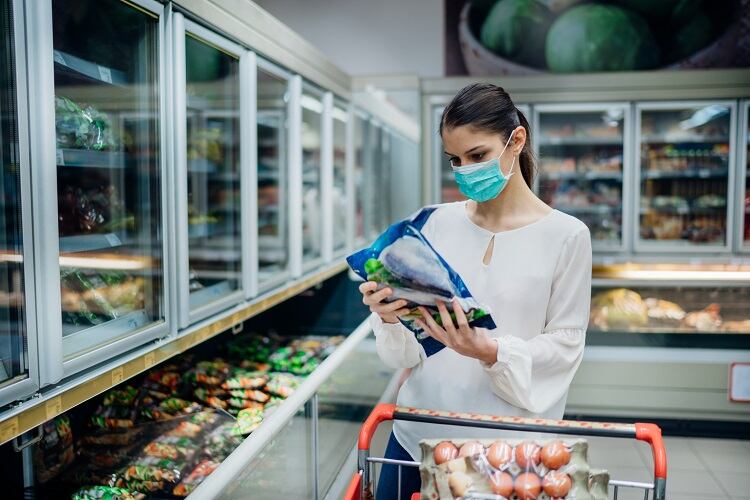
It has been suggested that the ‘new normal’ – whereby all restrictions are lifted – will come into play around Q3/Q4 of this year. At this point, McKenna predicts a slight dip in e-commerce demand.
“I think in the short run, online may take a bit of a downturn relatively speaking. But it will still be above the pre-COVID peaks and people will still realise the benefits [of online shopping].”
And finally, crystal ball-gazing up to four years into the future, McKenna predicts e-commerce to continue to match its peak during COVID, adding that ‘it might even exceed it’. “Fundamentally, people have realised that e-commerce and online is so much about convenience…so much about inspiration and education.
“So many of these benefits are not going to suddenly disappear from peoples’ minds. In the long run, online will definitely continue to win. I do think there will be a very short one or two month drop in a post-COVID environment, but fundamentally nothing major.”


